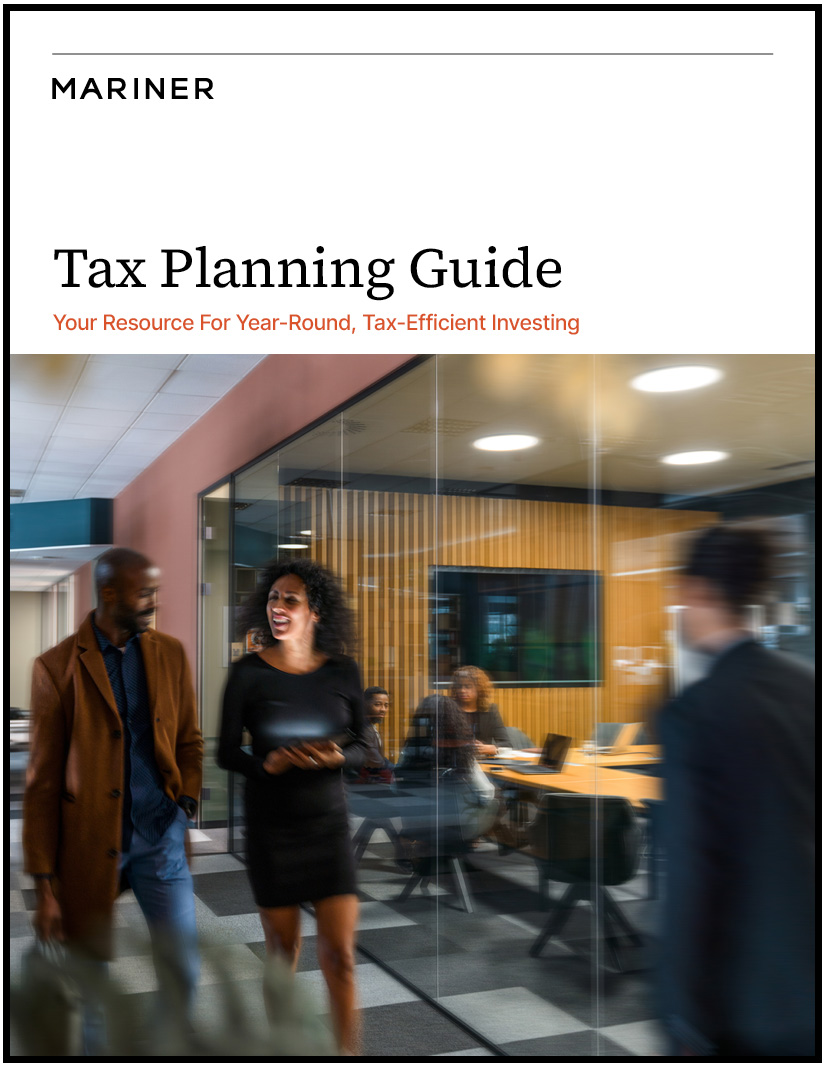Long-Term Capital Gains Tax Strategies
Read time: 5 minutes
When you meet with your advisor and tax professional to review your wealth plan, consider discussing whether to put the following strategies in place to help avoid paying long-term capital gains taxes.
Harvest Losses
You can offset long-term capital gains by harvesting losses within your portfolio. For losses that are greater than your gains, it’s possible to deduct up to $3,000 per year1 against your ordinary income and carry over any excess to future years.
Make Charitable Donations
Even if you are no longer itemizing your deductions, it’s still possible to make a charitable donation of appreciated stock to avoid a capital gains tax. One option is through funding a donor-advised fund. This type of fund provides an income tax deduction for the fair market value of any stock donated, with the added bonus of no capital gains tax. Your advisor can provide additional information on how to establish this type of charity vehicle.
Tax Guide: Your Resource for Year-Round, Tax-Efficient Investing
Year-round planning with an advisor could help improve your overall wealth plan. Find out more by downloading our tax guide.
Consider a 1031 Exchange
A 1031 exchange allows business and investment property owners to roll capital gains from the sale of a property into the purchase of a new property, which then takes on the first property’s lower cost basis. The benefit to this arrangement is that it allows you to keep money working on your behalf that otherwise would have been paid out in taxes.
Buy and Hold
If you leave appreciated stock to your heirs at the time of your death, they will receive an automatic step-up in basis to the market value at the date of your death; therefore, you avoid a capital gains tax.
Make Gifts to Family Members
The annual gift tax exclusion is $18,000 per individual in 2024.2 Highly appreciated stock that is given to a child or parent as a gift maintains its lower cost basis until it is sold.
Consider Investing in Opportunity Zone Funds*
Opportunity Zone funds invest in economically distressed communities and may be eligible for preferential tax treatment. This preferential treatment may include a temporary deferral of accumulated capital gains and a 0% capital gains rate on new gains for investments held 10 years.
Manage Your Tax Bracket
Work with your advisor to sell stock during years in which your income is lower and keep an eye on paying 0% in capital gains whenever possible.
Time Your Relocation
Several states do not have state income tax, including Alaska, Florida, Nevada, South Dakota, Tennessee, Texas, Washington, Wyoming and New Hampshire. While these states generally have no state income tax, some may tax portions of income such as interest, dividends or capital gains. If you plan on moving to one of these states, wait until you’ve established your domicile before triggering a sale that would be taxed at capital gains rates.
Collaborative Team Approach
Putting clients first is what we do. Giving advisors access to in-house support is how we do it. Tax strategies, estate planning, investment management— our advisors have the knowledge and resources to find smart, modern answers for your wealth.
We’ll work to help you avoid long-term capital gains taxes through proactive tax planning. We believe a solid wealth plan should integrate finances and taxes to help provide the most tax-advantaged strategy possible.
Sources:
1”How to Cut Your Tax Bill With Tax-Loss Harvesting”
2“What’s New-Estate and Gift Tax”
This material is provided for informational and educational purposes only. It does not consider any individual or personal financial, legal, or tax circumstances. As such, the information contained herein is not intended and should not be construed as individualized advice or recommendation of any kind. Where specific advice is necessary or appropriate, individuals should contact their professional tax, legal, and investment advisors or other professionals regarding their circumstances and needs.
Any opinions expressed herein are subject to change without notice. The information provided herein is believed to be reliable, but we do not guarantee accuracy, timeliness, or completeness. It is provided “as is” without any express or implied warranties. Tax laws are complex and subject to change without notice. Investing involves risk, including the possible loss of principal.
*1031 Exchanges and Opportunity Zone Funds are not appropriate for all investors. 1031 Exchanges are complex transitions that have considerable real estate investments risks and failure to comply with the stringent requirements may result in a complete loss of the desired tax deferral, etc. It is important to discuss your circumstances with qualified professionals before making any financial related decisions. There is also no assurance that any investment strategy pursued by a Opportunity Zone Fund will be successful or will achieve its intended objective. Investments in these funds entail significant risks, volatility, and capital loss, including the loss of the entire amount invested. The increased risk of investment lost is only appropriate for those qualified investors who have the financial sophistication and expertise to evaluate the merits and risks of an investment in a fund.
Mariner is the marketing name for the financial services businesses of Mariner Wealth Advisors, LLC and its subsidiaries. Investment advisory services are provided through the brands Mariner Wealth, Mariner Independent, Mariner Institutional, Mariner Ultra, and Mariner Workplace, each of which is a business name of the registered investment advisory entities of Mariner. For additional information about each of the registered investment advisory entities of Mariner, including fees and services, please contact Mariner or refer to each entity’s Form ADV Part 2A, which is available on the Investment Adviser Public Disclosure website. Registration of an investment adviser does not imply a certain level of skill or training.



